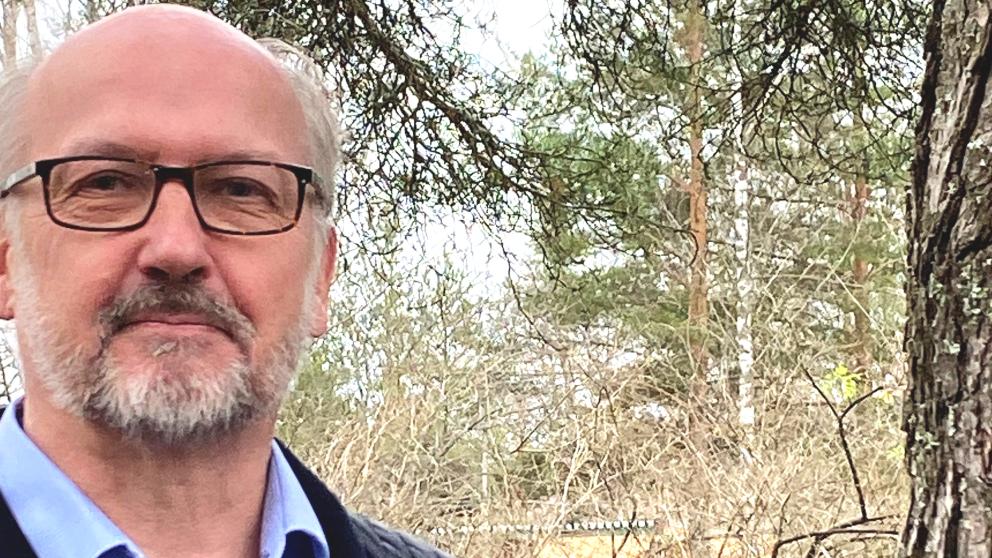Dissertation: How to succeed in the digital transition? – combine ecosystems and smart specialisation

– Vast amounts of data, new technologies utilising high-speed data networks, and innovation shape our future. No administrative decisions will help here, instead, ecosystems formed by a region's companies, communities and universities are needed to create competitiveness in the digital transition, says Ruohomaa, who will defend his doctoral dissertation at the University of Vaasa on 9 December.
In his dissertation in the field of industrial management, Ruohomaa outlines the management of complex change as a process of cooperation between different actors, all of whom have a role to play.
– In ecosystemic development, all players are required to have a strong commitment to the agreed shared direction. Thus, a vision is needed, as well as sufficient resources, which should be allocated in line with the smart specialisation strategy.
According to the results of the dissertation, something new and innovative is also needed for change, something which no one could have achieved alone. Data collected from different industries can be combined, and in this way, innovative services and products can be designed that support the development of a sustainable society.
According to Ruohomaa, change is successful only when it has been implemented and has proved its worth.
The public sector, for example cities, play a key role when a long-term strategy and roadmap are created for an ecosystem. Cities and municipalities are the biggest players in their region. Through their operations, they can influence the development of the business environment: for example, by opening their data as open data or by placing themselves as test and piloting environments.
Tests in real-life environments
Ruohomaa's dissertation focuses mainly on the Häme region and the Häme growth corridor, but it can also be applied in other regions.The piloting of the city bike system, for example, was implemented in a real-life urban environment. Through this, new ideas were obtained, and things were noticed that would otherwise have gone unnoticed. City bike systems already in themselves provide valuable data that can be combined with open data, such as weather conditions or transport schedules. This creates new understanding of the nature and development needs of mobility.
– Sharing and utilising city bike data may seem quite insignificant. But if, for example, cities in Finland's growth corridor agree on common principles for city bikes, and the data collected is utilised and shared, the development of public and low-carbon mobility will become possible on a whole new scale, says Ruohomaa.
According to Ruohomaa, this does not require additional investment, but only that data issues and the use of data are defined together in invitations for tender for the procurement of city bike systems.
Transition requires new thinking
The fourth industrial revolution will change business models and competition. Ruohomaa reminds us that it will also provide new opportunities for solving the so-called "wicked problems" of the world, such as environmental problems and climate change.
– The biggest risk in change isn't change in itself, but that it is responded to with traditional thinking, says Ruohomaa.
Dissertation
Ruohomaa, Heikki (2020) Ecosystem-based transition in the fourth industrial revolution. Acta Wasaensia 452. Doctoral dissertation. Vaasan yliopisto. University of Vaasa.
Publication pdf: http://urn.fi/URN:ISBN:978-952-476-931-0
Public defence
The public examination of M.Sc. Heikki Ruohomaa’s doctoral dissertation ”Ecosystem-based development in the transition of fourth industrial revolution” will be held on Wednesday 9 December 2020 at 12.
The event will be organised online: https://utu.zoom.us/j/64859921797 Meeting ID: 648 5992 1797
The field of dissertation is Industrial Management. Docent Juha Kostiainen (YIT Corporation) will act as an opponent and Professor Jussi Kantola as custos. The examination will be held in Finnish.
Further information
Heikki Ruohomaa, tel. +358 40 580 0286, email: heikki.ruohomaa (@) hamk.fi
Heikki Ruohomaa was born in Alastaro and currently resides in Akaa, Finland. He graduated from Tampere University of Technology with a master's degree in engineering in 1987 and completed an MBA at the Helsinki School of Economics in 1993.
Heikki Ruohomaa has long worked at Häme University of Applied Sciences, as a lecturer, degree programme director, unit director and regional director, among others. Currently, he works as Research Manager at the HAMK Smart Research Unit of Häme University of Applied Sciences.